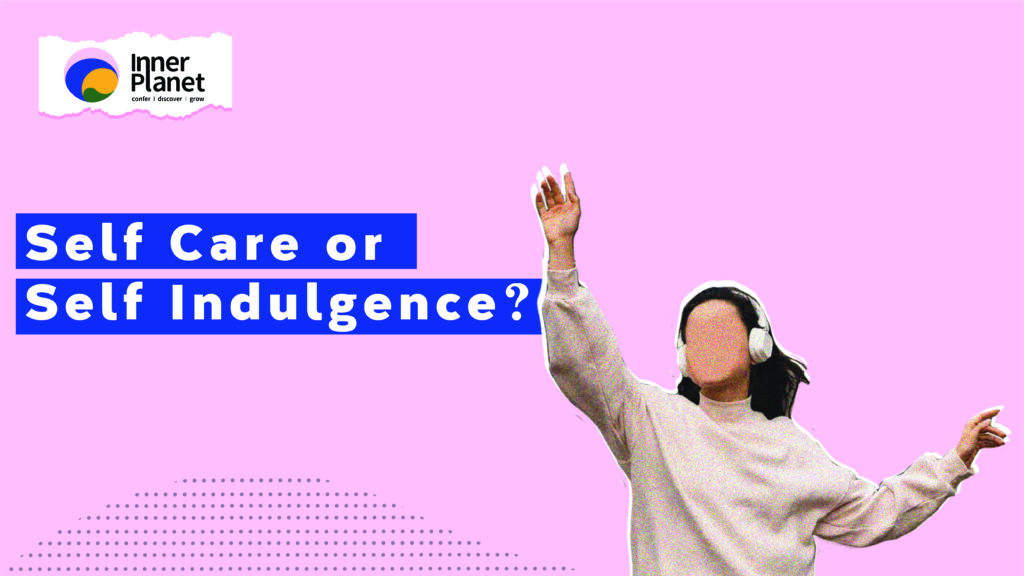Lately, self-care has become the avocado toast of wellness trends—everywhere you look, someone’s indulging in a face mask or splurging on a shopping spree. But hold on to your bath bombs, because pop culture’s take on self-care isn’t always what it seems. Underneath the glamour of spa days and retail therapy lies a much deeper, often less Instagrammable reality. Let’s unravel the evolution of self-care and discover how to reclaim it from the glittery myths of pop culture.
Self-Care: Psychological vs. Pop Culture
Self-care, in terms, involves actions individuals take to maintain health and well-being, including managing stress, exercising, and eating healthily. Pop culture, however, often equates self-care with indulgence, like spa days and luxury purchases. While both perspectives recognise the importance of self-care, pop culture’s portrayal can overshadow the deeper, more sustainable practices essential for long-term well-being.
Self-care’s roots are deeply embedded in medical practices aimed at improving physical and mental health. Historically, it encompassed activities like maintaining a balanced diet, exercising regularly, and managing stress. However, with the rise of social media, it has morphed into a trend that emphasises aesthetics and instant gratification over genuine and sustainable wellness.
Popular Self-Care Tropes and Their Realities
“Treat Yo Self”: Immediate Gratification vs. Long-Term Well-Being
The “Treat Yo Self” mantra, popularised by TV shows like “Parks and Recreation,” advocates for indulgence as a form of self-care. Although it started the conversation around self-care, it didn’t quite truthfully depict the complete truth. Yes, at the end of the day it is just a sitcom, but that is precisely when these notions may enter our minds subconsciously and solidify. While it’s fun to splurge occasionally, relying on instant gratification can neglect the importance of consistent, healthy habits. True self-care involves making choices that benefit long-term well-being rather than just offering a temporary mood boost.
“Retail Therapy”: Shopping’s Temporary High and Potential Pitfalls
Retail therapy suggests that buying new things can improve your mood. While shopping can offer a temporary high, research suggests that it often leads to buyer’s remorse and financial strain. A survey spanning 23 countries and over 114,000 adults, found that nearly 80% said they made at least one splurge purchase to lift their mood in the past month despite only 42% saying they could afford to make such indulgent purchases. This highlights the need for more sustainable self-care practices such as mindful spending and budgeting wherein you allow yourself to indulge, but consciously!
“Eat, Pray, Love” Syndrome: The Myth of Drastic Life Changes

Inspired by the book and movie “Eat, Pray, Love,” this trope suggests that drastic life changes are necessary for true self-care. Certain drastic life changes may prove beneficial, but often the benefits stick majorly through consistency. Practical self-care is usually found in small, consistent actions over a life, rather than major life overhauls. Regularly integrating self-care practices into your daily routine can be more effective and less disruptive.
“Girls’ Night Out”: Social Connection Benefits vs. Unhealthy Escapism
A night out with friends can indeed be refreshing and boost mental health through social connection. Yet, using it as a primary self-care method can lead to escapism, avoiding the root causes of stress and unhappiness. Balancing social activities with other forms of self-care, like investing in self-awareness, setting boundaries and taking time for oneself, is crucial.
Social Media’s Impact and Celebrity Influence
Social media platforms like Instagram often showcase an idealised version of self-care, creating pressure to conform to these standards. This performative self-care can detract from personal, meaningful practices that truly benefit one’s well-being.
Celebrities frequently endorse extravagant wellness trends that are neither practical nor accessible for the average person. These endorsements can create unrealistic expectations and encourage spending on unnecessary products. High-end self-care products and practices often exclude those without substantial disposable income, highlighting a significant accessibility issue within the pop culture portrayal of self-care.
Mental Health in Pop Culture

Media portrayals of mental health in TV shows and films significantly influence public perception, shaping how individuals approach their own mental health and self-care practices. Shows like “BoJack Horseman” – despite its dark humour – tackles issues like depression and addiction with depth, highlighting the importance of addressing mental health directly. Whereas a show like “13 Reasons Why” – while bringing attention to serious issues like suicide and bullying, ends up glamorizing these issues instead. These portrayals can shape viewers’ understanding and attitudes towards mental health, making it crucial for the media to handle these topics responsibly. Studies indicate that realistic and empathetic representations can reduce stigma and encourage people to seek help.
What Pop Culture Misses
True self-care lies in routine and consistency—regular exercise, a balanced diet, adequate sleep, and mental health practices like mindfulness or therapy. These practices may seem “unsexy” but are essential for our genuine well-being.
Self-soothing activities provide temporary relief, while true self-care addresses long-term needs and well-being. Distinguishing between the two is vital for a balanced approach to health. Effective self-care is highly personal. No one on social media can pinpoint what you need, the best they can do is point you in the right direction. Identifying and integrating practices that align with your individual needs and lifestyles will ensure a more sustainable and beneficial approach.
It’s essential to critically navigate self-care messaging, discerning between superficial trends and meaningful practices that contribute to long-term well-being.
Embracing evidence-based, holistic approaches, like therapy and meditation, ensures that self-care genuinely supports mental and physical health, rather than just providing temporary comfort or social media content.
References
- https://www.who.int/news-room/fact-sheets/detail/self-care-health-interventions
- https://www.verywellmind.com/a-critical-look-at-self-care-culture-6743663
- https://www.slate.com/articles/arts/culturebox/2017/04/the_history_of_self_care.html
- https://thelancer.sfhs.com/2023/02/02/trend-z-the-evolution-of-self-care/
- https://ojs.library.dal.ca/JUE/article/view/9377
- https://sci-hub.se/10.1080/00222216.2019.1588694
- https://digitalcommons.unf.edu/cgi/viewcontent.cgi?article=1026&context=pandion_unf
- https://www2.deloitte.com/us/en/insights/industry/retail-distribution/consumer-behavior-trends-state-of-the-consumer-tracker/splurge-spending-inflation-lipstick-index.html


